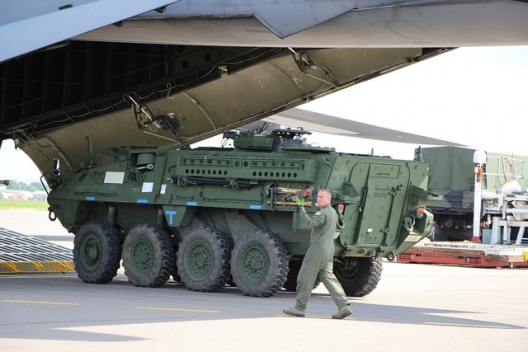 In dealing with Russia, the U.S., together with its allies, must enhance deterrence, reduce strategic economic dependency, and retain diplomatic cooperation when interests coincide. The desirable outcome is a Russia that will not use force or intimidation to generate geopolitical outcomes and will cooperate with the West on common interests.
In dealing with Russia, the U.S., together with its allies, must enhance deterrence, reduce strategic economic dependency, and retain diplomatic cooperation when interests coincide. The desirable outcome is a Russia that will not use force or intimidation to generate geopolitical outcomes and will cooperate with the West on common interests.
First, since Putin has demonstrated his willingness to adjust European borders by force, NATO needs to deter Russia from further aggression. Russia’s annexation of Crimea completely ignored the 1994 agreement among the United States, the United Kingdom, Ukraine and Russia to “respect the independence and sovereignty and the existing borders of Ukraine.” This, along with Russia’s actions in Georgia and cyber attacks in Estonia, has significantly changed the security landscape in Europe. The 1997 NATO-Russia Founding Act envisioned a “current and foreseeable” stable geopolitical environment. That is quite different now and NATO nations no longer need to refrain from deploying troops to new members.
There are sensible, prompt steps that NATO can take to enhance deterrence but they must be substantive and long-term not short-term and for show. Most importantly, the capacity to reinforce NATO’s eastern members should be improved. That will involve developing host nation support, prepositioning, and stationing of forces, mostly in Poland but to a limited extent in the Baltic States. . . .
Kramer is a distinguished fellow and board member at the Atlantic Council and a former assistant secretary of defense. Binnendijk is a former National Security Council senior director for defense policy and is currently a senior fellow at the SAIS Center for Transatlantic Relations.
Image: US Strikers arrive in Vilnius for Saber Strike exercise, June 7, 2014 (photo: Lithuanian Armed Forces)
